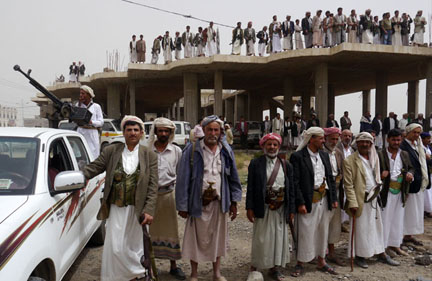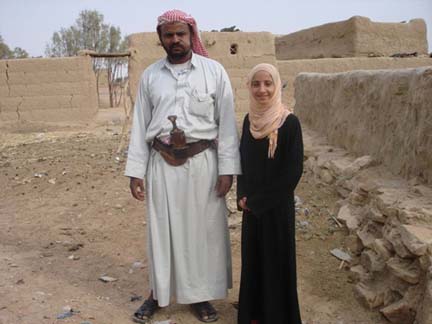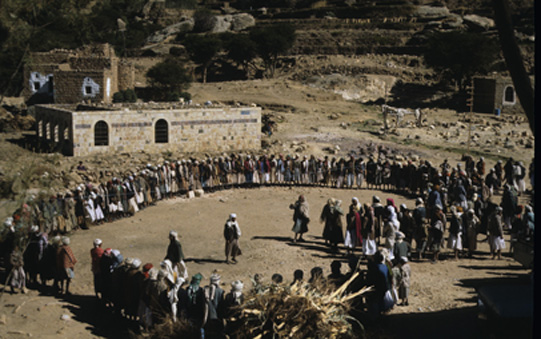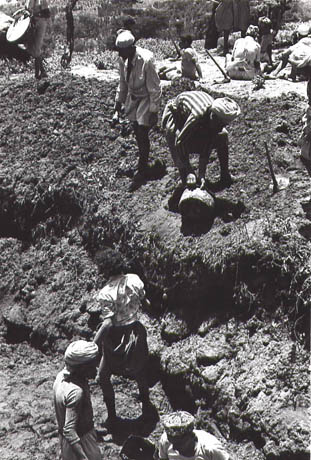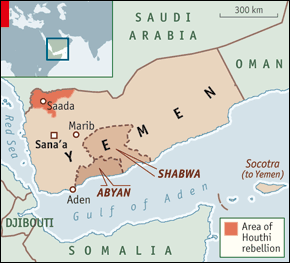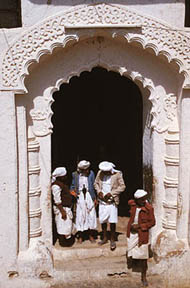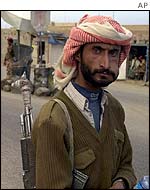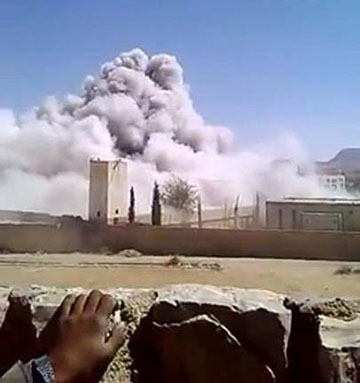
Embattled residence of Husayn al-Ahmar
I wish this was a commentary about rival football clubs in Yemen, but it is not. The news this morning is that Huthi forces have battled the tribal guard of the al-Ahmar clan, specifically the home of Husayn of al-Ahmar. Husayn is the son of the late Abdullah al-Ahmar, who passed away in 2007 but had been paramount shaykh of Hashid since the execution of his father by Imam Ahmad. Before the revolution that toppled the Zaydi imamate, the two tribal confederations of Hashid and Bakil were said to be the wings of the imamate, cautiously manipulated by the last dynasty of Zaydi imams in the north. While tribal identity, and more importantly tribal values embedded in an honor code of qabyala, is still of major importance in Yemen today, the importance of Hashid and Bakil as major political blocks has weakened. This is due in part to the efforts of Ali Abdullah Salih, Yemen’s last president, to create loyalty to his regime. But it is also a result of imported views of Islam, including the Saudi-funded Salafis.
Yemen is beset with internal strife, fueled in large part by outside interests. The recent National Dialogue Conference has recommended a resolution to the current political stalemate along the lines of a federalist state. The expansion of Huthi influence closer to the capital may be part of the jousting for position in determining the boundaries of new federal states. Whatever the reason, this escalation of violence only exacerbates the tension that exists between Yemenis in various regions. Assassinations now seem to be almost a daily occurrence and Yemen’s economy has ground to a standstill. It is reported that the agricultural lands near Sa’da have been destroyed due to the fighting there between the Huthis and their foes, both the military excursions that Salih sent and the Salafis based in Dammaj. In this unrest, the feeble AQAP is able to operate with virtual impunity, despite the continued use of drones to target suspected terrorists.
